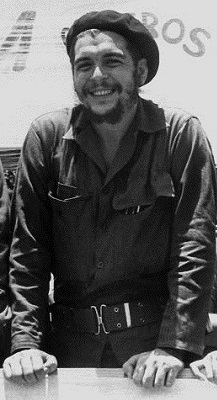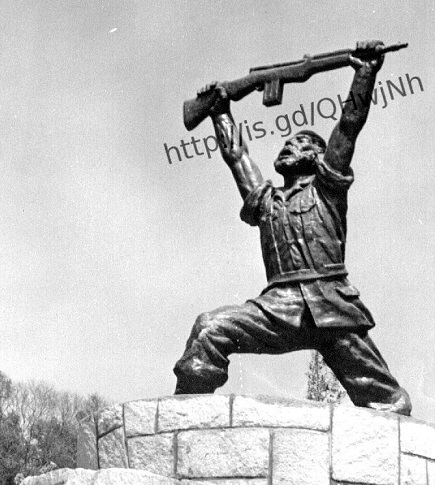|
~ Ernesto Che Guevara
~ Galéria
~ Oldal
~ Bejelentkezés
~ Vissza a Főoldalra
Ernesto Che Guevara, az argentin származású forradalmár, miniszter, gerillavezér és író, Buenos Aires-ben szerzett orvosi diplomát, majd a kubai forradalom során jelentős szerepet játszott a szigetország felszabadításában és újjáépítésében. A kubai gazdaság talpraállításáért dolgozott, küzdött az oktatás és az egészségügy fejlesztéséért, az írástudatlanság és a faji előítéletek felszámolásáért. Saját példájával népszerűsítette az önkéntes munkát. Kongóban és Bolíviában is harcolt - harminckilenc éves volt, amikor az amerikai-bolíviai csapatok csapdába ejtették és kivégezték.
| | |
|

| | |
|
|
|
Che Guevara első szobra
|
 San Miguel, Santiago, Chile San Miguel, Santiago, Chile
Che Guevara első szobrát, amelyet az emlékére emeltek a világon, 1970. november 8-án avatták fel - a polgármester, Tito Palestro Rojas javaslatára.
A szobrot Praxíteles Vázquez alkotta meg, a talapzatot három építész, Gastón Jobet, Raúl Bonnefoy és Guaraní Pereda tervezte. 300.000 escudo-ba került (1.500.000 chilei peso) és 1400 kilót nyomott.
A bronzszobrot 1973. április 22-én robbantották fel a chilei fasiszták Augusto Pinochet Ugarte uralma alatt.
További képeket láthatsz a szoborról itt: [Galéria]
|
|
San Miguel, Santiago, Chile
Che Guevara's first statue in the world was erected on 8th November 1970 - by the idea of the mayor, Tito Palestro Rojas.
It was created by the sculptor, Praxíteles Vázquez and the base was designed by the architects, Gastón Jobet, Raúl Bonnefoy and Guaraní Pereda. It cost 300,000 escudos (1,500,000, Chilean pesos) and it weighed 1,400 kilos.
The bronze statue was blown up and destroyed on 22 April 1973 by the Chilean fascist dictatorship, led by General Augusto Pinochet Ugarte.
You can check out more photos of the statue: [Gallery]
|
|
|


| | |
|
|
|
~ Ernesto Che Guevara
~ Gallery
~ Site
~ Log in
~ Back to the Main page
Ernesto Che Guevara, the Argentine-born revolutionary, minister, guerrilla leader and writer, received his medical degree in Buenos Aires, then played an essential part in the Cuban Revolution in liberating and rebuilding the country. He did his best to set up the Cuban economy, fought for the improvement of the education and the health system, the elimination of illiteracy and racial prejudice. He promoted voluntary work by his own example. He fought in the Congo and in Bolivia - he was thirty-nine years old, when he was trapped and executed by the joint American-Bolivian forces.
| | |
|
|

